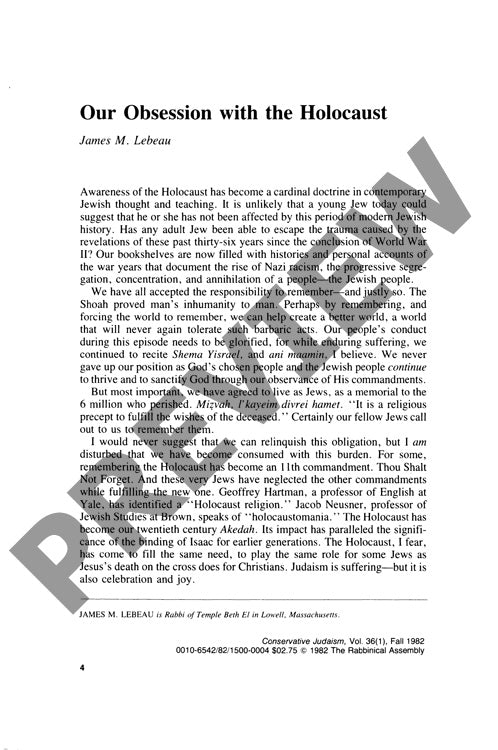Our Obsession with the Holocaust
Couldn't load pickup availability
The Holocaust's central position in contemporary Jewish identity raises a critical paradox: excessive focus on this historical tragedy may actually undermine substantive Jewish religious and cultural life. While Holocaust remembrance remains essential, its dominant role has created what scholars term "Holocaust religion" or "holocaustomania," transforming communal memory into a potential barrier to authentic Jewish practice. Through comparative historical analysis, this research draws revealing parallels between today's Holocaust emphasis and Jewish responses to the Temple's destruction in 70 C.E., examining educational curricula and community practices across both periods. The findings reveal that Holocaust-centered Judaism often promotes a "Judaism of defiance without substance," where remembrance substitutes for active religious observance and cultural engagement. This dynamic reinforces problematic victimhood narratives for non-Jewish audiences while generating counterproductive guilt among both Jewish and non-Jewish communities. Moreover, Holocaust obsession paradoxically facilitates assimilation by providing superficial Jewish identification without meaningful religious commitment. Authentic Jewish continuity requires shifting emphasis from mere survival to the preservation and practice of Judaism itself, integrating Holocaust memory within, rather than substituting for, comprehensive Jewish education and observance. Sustainable Jewish identity must balance historical remembrance with celebration of Jewish life, learning, and religious practice.

More Information
-
Physical Description
-
Publication Information
Published 1982
ISBN
-
Publication Credits
James Lebeau

